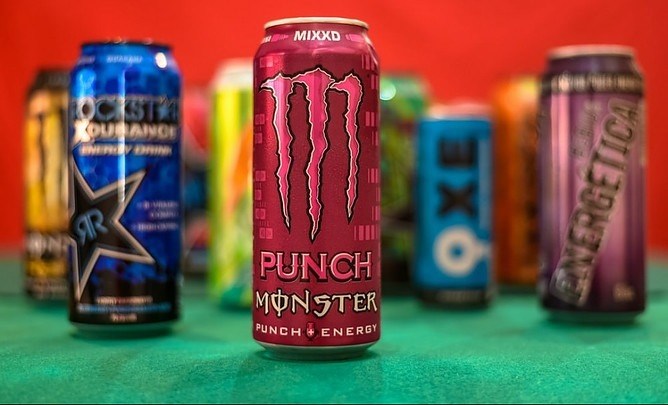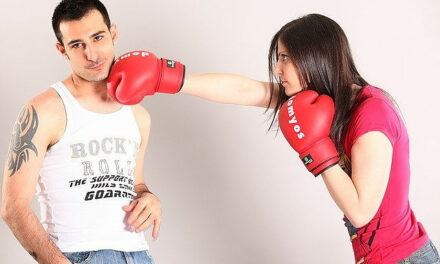Energy drinks were initially made for athletes, students and anyone who needs a boost or an extra jolt of energy, concentration and alertness. As it continually gains popularity, many concerns have been raised about the health implication of consuming energy drinks. Healthcare professionals warn of possible consequences for heavy energy drink consumers. Many researchers have also conducted research to discover more about this issue and present us with facts. Are energy drinks bad for you? Does energy drinks aid anxiety? Can Energy Drinks Cause Anxiety Attacks? And, what is the link between energy drinks and anxiety?
In this article, we will answer all the above questions and more. Let’s start by defining what really energy drinks are.
What are Energy Drinks?
Energy drinks are products promoted as being capable of mental stimulation and physical enhancement. They contain a high amount of stimulant, mostly caffeine and sugar, among other ingredients.
Stimulants are drugs that induce wakefulness, alertness, elevated mood, increased speech and motor activities. They basically stimulate the central nervous system and the brain.
But, prolonged use of these stimulants in high doses causes side effects such as restlessness, mood swings, irritability, anxiety, hyperactivity, and excessive speech. There are quite a number of stimulants out there, mostly for therapeutic purposes. Still, we will restrict our discussion to caffeine (methylxanthines), which is the main stimulant in most of the energy drinks available in supermarkets.
Methylxanthines are milder forms of stimulants which occur naturally in plants. Pure caffeine (trimethylxanthine) is odourless and has a bitter taste.
(Don’t worry though, we cover about other stimulants under the heading ‘What Does Consuming Energy Drinks Do To Your Body?’ below)
Types of Energy Drinks
Here are the energy drink types.
1. Energy drinks
The main stimulating agent in an energy drink is caffeine.
It is recommended that adults consume only up to 400mg of caffeine a day and 200mg per dose. An 8 ounce (237 ml) energy drink contains about 80 mg of caffeine, comparable to the amount in an average cup of coffee.
But then, energy drinks are sold in larger containers, with even more caffeine. Some of the additional ingredients are also natural sources of caffeine, like the guarana seed, which contains about 40mg of caffeine per gram. Hence, it is quite difficult to determine the actual amount of caffeine in an energy drink.
However, thankful to ‘social push’ in recent times, energy drink manufacturers are producing low sugar, low carb energy drinks suitable for people watching their sugar levels.
Tip: Here are the Best Coffee Creamers for Diabetics.
2. Energy shot
Energy shot is the little brother to energy drinks. They come in small containers but contain a load of caffeine.
For example, a 57 ml energy shot can contain about 200 mg of caffeine.
3. Energy mix
Mixing energy drink with alcohol has become very popular and loved among college students and young adults. Even though warnings have been issued concerning possible health risks associated with this mix, it has continued to gain popularity.
Some clubs continue to experiment and have even invented different cocktail mixes that appeal to young adults.
Leading Energy Drink Brands and Products
Here are the top 10 leading brands.
1. Red Bull
Red Bull is produced by a drink company in Austria, established in 1987, called Red Bull GmbH. It has since then grown into a huge beverage conglomerate, one of the biggest in the world.
Red Bull brand is the most popular and best-selling energy drink on the market.
An 8.4 fl oz can of Red Bull contains:
- 80 mg of caffeine,
- B-vitamins,
- glucose,
- taurine, and
- sucrose.

2. Monster
Monster Energy drink is produced by Monster Beverage, a huge beverage company based in the USA.
Monster Energy drink (launched since 2002), can be said to be the second most popular energy drink after Red Bull. It is packed with energy and comes affordable and accessible.
16 fl oz can of Monster Energy contains:
- 160 mg of caffeine,
- L-carnitine,
- ginseng,
- guarana,
- glucose,
- taurine, and more.
3. Rockstar
Rockstar Energy, an energy drink company, produces Rockstar Zero Carb as well as several other Rockstar flavours. Rockstar zero carb packs a powerful boost but has zero sugar and just 10 carbs per serving.
16 fl oz can of Rockstar Zero Carb contains:
- 240 mg of caffeine,
- L-carnitine,
- ginseng,
- taurine,
- yerba mate extract,
- ginkgo,
- guarana blend, and more.
4. Zipfizz
Zipfizz beverage company was founded in 2003 and started towards developing a healthy energy drink formula. Zipfizz is an electrolyte energy drink that comes in a powdered form (soluble in water) and is available worldwide.
It contains just 10 carbs and zero sugar.
11g tube water mix contains:
- 100 mg caffeine,
- botanical antioxidants (green coffee bean extract, green tea-leaf extract, grape seed extract, and more),
- vitamins and electrolytes (including sodium, potassium and calcium).
5. Redline Xtreme
Redline Xtreme RTD is produced by Redline Sports Nutrition or also known as VPX, which was founded in 1993. It focuses on developing high quality scientifically supported products for athletes. It comes in a pair of 4 oz bottle with all the energy boost, and electrolytes athletes need.
4oz (1/2 8oz) bottle contains:
- 158 mg of caffeine,
- BCAAs (beta-alanine, L-valine, L-leucine, L-isoleucine),
- green tea extract,
- tyrosine,
- electrolytes (magnesium, calcium and potassium), and more.
6. Starbucks Refreshers
Starbucks, now the planet’s biggest coffee business are the makers of Starbucks Refreshers. It is packed with natural coffee extract and juice and comes in three tasty flavours.
12 fl oz can contains:
- 50 mg caffeine,
- fruit juice and
- ginseng,
- B vitamins.
7. 5-Hour Energy
5-Hour Energy is an energy shot produced by Living Essentials based in Michigan. It contains all the energy and nutrition in a concentrated 2 oz bottle.
2 fl oz bottle contains:
- 200 mg of caffeine,
- taurine,
- malic acid,
- glucuronic acid,
- L-tyrosine,
- L-phenylalanine,
- citicoline energy blend,
- B vitamins,
- folic acid,
- niacin and more.
8. Fast Twitch RTD
CytoSport was founded in 1993 and is the manufacturer of CytoSport Fast Twitch RTD. It is an energy drink mixed with nitric oxide supplements, which is excellent for gym lovers.
Its 16.9 fl oz can contains:
- 200 mg of caffeine,
- taurine,
- glucuronolactone,
- anhydrous betaine,
- L-citrulline,
- glycocyamine,
- L-arginine,
- vitamins,
- folic acid and sodium.
9. Xyience Xenergy
This product is produced by Xyience, an energy drink and health supplement company based in Texas. Xyience Xenergy is a zero sugar, zero carb drink, and comes in various flavours but is a bit costly.
A 16 fl oz can contains:
- 176 mg of caffeine,
- guarana extract,
- taurine,
- glucuronolactone,
- ginseng panax and more.
10. SAMBAZON
SAMBAZON Organic energy drink is focused on using a natural superfood in the Amazon, acai berry. They are natural, vegan and gluten-free.
A 12 oz can contains:
- 80 mg caffeine (from natural sources which includes guarana, yerba mate, and green tea extract),
- antioxidants (acai berry juice).
When Should You Drink Energy Drinks?
Energy drinks are known to improve alertness and concentration, so they should be best consumed in the following situations.
-
When driving long distances
Long-distance drivers deprived of sleep need to stay awake and alert while driving. They can consume energy drinks to help stay awake and alert.
-
When studying
Energy drinks help improve concentration, alertness as well as memory function. This is why energy drinks are popular among students.
-
When working
for the working-class individuals, they can take energy drinks about 10 minutes before they get to work. This way, the effect of the energy drink starts kicking in as soon as they arrive at work.
What Do Consuming Energy Drinks Do To Your Body?
You may want to ask what consuming energy drinks do to your body. Here are some of the ingredients in popular energy drinks and what they do to the body.
-
Caffeine
Caffeine is a stimulant that blocks the effect of adenosine (a brain chemical involved with sleep) and causes the neurons in the brain to fire. Then, the pituitary gland will think the body is under attack and initiate the fight or flight protocol by releasing adrenaline hormones.
-
Sugar
Most energy drinks are now low carb or contain no sugar at all, but sugar adds up to the calories in an energy drink.
-
Ephedrine
A commonly used ingredient found in decongestants and weight loss products, this stimulant works on the central nervous system.
-
B Vitamins
This group of vitamins improves muscle tone and can convert sugar to energy.
-
Taurine
Not quite sure its effects as a drink additive, but it is a natural amino acid the body produces. It helps regulate muscle contractions and heartbeat.
-
Ginseng
It is a medicinal root herb that reduces stress and boosts energy levels.
-
Inositol
Not exactly a vitamin, but a member of the vitamin B complex that helps cells in the body communicate.
-
Creatine
Energy is supplied for muscle contraction with the help of this organic acid.
-
Guarana
Guarana seed is a stimulant.
-
Ginkgo biloba
Ginkgo biloba enhances memory.
-
Carnitine
Carnitine is an amino acid, helps in fatty acid metabolism.
When Should You Not Drink Energy Drinks?
We recommend you to strongly reconsider the habit in the following circumstances.
-
When the energy drinker has kidney disease or the drink is a ‘diuretic’.
This means it makes the kidneys release more fluid into the urine, causing less fluid in the body. Taking energy drink during or after exercising and sweating is dangerous and can lead to severe dehydration.
-
Drinking with alcohol
Alcohol also has dehydrating effects, so consuming energy drink mixed with alcohol can significantly drop your body fluids to a dangerously low level.
What are the Dangers of Energy Drink Consumption?
There are some dangers associated with the consumption of energy drinks. Let’s explore them now.
-
Migraines and headaches
Changes in the dosage of caffeine you ingest can cause frequent migraines or headaches, due to caffeine withdrawal symptoms. Too much energy drinks can cause headaches.
-
Obesity
A 16 oz energy drink may contain about 54 to 62 grams of added sugar. This is more than the required amount of sugar recommended in a day, and you find people consuming more than one can of energy drink daily. This may pose serious health issues and can lead to obesity or type 2 diabetes.
-
Diabetes
High consumption of caffeine reduces insulin sensitivity, and that itself can lead to type 2 diabetes.
Tip: Glucerna is a better option for those with diabetes.
-
Blood pressure
Caffeine overdose leading to symptoms such as high blood pressure, palpitations, convulsions, nausea and vomiting, or even death.
-
Pregnancy issues
Pregnancy complications leading to miscarriages are stillbirth and low birth weight.
-
Substance abuse
Dependence and use of harmful substances are common trends among energy drink addicts.
-
Your heart
These drinks could affect the cardiovascular and neurological systems in adolescents and children. People with severe underlying heart problems go into cardiac arrest after consuming just a few energy drinks.

-
Your behavior
Energy drinks mixed with alcohol gives the sensation of being wide awake while drunk and can lead to dangerous or risky behavior such as unprotected sex and violence.
-
Insomnia
Energy drinks can cause insomnia, especially when it is abused.
-
Anxiety and panic attacks
Energy drinks can cause increased anxiety and panic attacks.
More information from the NHS here.
How to Differentiate a Good Energy Drink From a Bad Unhealthy One?
You can tell how healthy an energy drink is from the list of ingredients and nutritional content on the product.
But, remember, there are some unhealthy ingredients which may appear in different names in some cases. Some of them have been banned for athletes, so check the energy drink label to make sure you are not taking what is dangerous for you.
Tips for Reading an Energy Drink Label
-
Energy dosage
The first thing to watch out for is the amount of caffeine per serving in the energy drink. The energy drink with the lowest caffeine per serving is a much healthier option.
-
Sugar
Watch out for the carb content if you are on a diet, or want to maintain a healthy lifestyle. Type 2 diabetics should opt for low carb or zero sugar energy drinks to avoid blood sugar spikes.
-
Additives
Sodium, high fructose corn syrup, artificial coloring, artificial sweeteners, are all ingredients to watch out for. They are dangerous in high doses and some are carcinogenic.
How Energy Drinks Affects Anxiety and Depression?
Energy drinks are loaded with stimulants, sweeteners and a handful of other ingredients, and they are easily accessible to anyone even minors. It is no surprise that there are increasingly dangerous side effects amongst the younger population who often consume more energy drinks than necessary.

Some people are prone to feel increasing anxiety after consuming caffeinated drinks like energy drinks because their adenosine receptors have 2 different generic variations. The fight or flight response is triggered as a result of consuming energy drinks.
As such, if you are addicted to energy drinks, the chances are you carry a risk of anxiety and depression later in your life.
What Does Research Say About The Link?
A recent study published by the Frontiers in Public Health Journal shows that people could be taking more caffeine than is safe due to the high levels of caffeine in energy drinks. Apart from upsetting your sleep pattern, it can upset your mood, and these two are symptoms of depression and stress.
Other research studies have implied while energy drinks may increase the risk of mental health outcomes that are undesirable, it was impossible to prove for sure the direct cause and effect.
Research also suggested that emotions can be impacted by the number of energy drinks consumed. For instance, 250 mg of caffeine made a subject feel elated, and 500 mg increased the subject’s irritability, so it could be said that caffeine affects a person’s mood.
Can Energy Drinks Cause Anxiety Attacks?
Yes.
Caffeine is a stimulant that affects the CNS (central nervous system) and increases blood flow and heart rate, and therefore, is not a good idea for someone with anxiety.
Too much caffeine can cause jittery effects and leave you moody. Now the combination of high dosage of caffeine and a handful of other stimulants found in energy drinks can make an anxious person even more anxious, and can even lead to anxiety attacks.
Do Energy Drinks Make Anxiety Worse?
Yes. If too much caffeine can lead to anxiety attacks, then you can be sure it can make anxiety worse. Because caffeine can be addictive, it may be difficult to avoid or stop, and that will lead to prolonged consumption in high doses. That’s just bad news for someone already suffering from anxiety.
What Can I Drink Instead of Energy Drinks?
Several other options boost your energy and help to keep you alert apart from energy drinks. They are a much more healthy option even if they may not give you the same amount of energy boost as an energy drink does.
-
Yerba mate
Yerba mate is prepared the same way you would prepare green tea or black tea.
It contains a bit of caffeine and some other incredibly beneficial substances. Part of it is beneficial factors are antioxidants and minerals which are healthy choices.
It is not addictive or acidic like coffee but lightens your mood while keeping you healthy.
-
Green tea
Whether taken hot or cold, teas boost your energy because they contain a bit of caffeine, and then some extra health beneficial substances. Green tea contains minerals and antioxidants beneficial to your health and wellness.
It also provides the necessary energy to keep you alert and healthy.
-
Protein shakes
Fatigue is commonly caused by lack of protein. A simple protein shake with some carbohydrates for faster energy conversion is enough to boost your energy level.
You can prepare a protein shake by mixing 10 grams of protein form of milk, soymilk, yoghurt or powder into your shake, and then you can add quinoa, wheat germ or fruits.
Tip: Here are the best protein drinks for diabetics.
-
Fresh juice
While we may be tempted to fuel our body with sugar-loaded snacks, our bodies can also produce energy when we consume healthy food. Caffeine is also not the only source of energy, Green and fresh juices help you feel awake and full.
You can make juices from quality ingredients such as nuts and seeds (rich in protein), leafy greens (for vitamins and iron), berries (antioxidants), kiwi, banana, citrus fruits and so on.
-
Ginger root tea
This tea does not contain caffeine or provide an immediate energy boost, but it has its benefits. Prolonged consumption of ginger root keeps you healthy and maintains your energy levels.
It prevents Alzheimer’s disease, aids digestion and the immune system.
-
Water
The water they say is the world’s best ‘energy drink’.
Dehydration causes slow metabolism and makes you feel sluggish. Drinking enough water will help keep you hydrated as well as aid fast metabolism so that your body can produce enough energy.
You can add strawberries, blueberries or fruit slices to spruce up your cup of water and add extra nutrition.

Conclusion
Energy drinks are known to improve mental alertness, memory, concentration, and fast reaction time while reducing mental fatigue. Many studies and research have also agreed with this, and have attributed this to caffeine and sugar. But while it helps many to stay alert and awake to get through their day, the side effects of prolonged consumption of high doses of caffeine, sugar and some other components such as artificial coloring and sweeteners pose a major threat.
To avoid side effects such as anxiety, insomnia, depression, heart problems and so on, it is advised that no more than 400 mg of caffeine should be consumed in a day.
Opting for other energy drink alternatives will also help in regulating the amount of caffeine consumed. Everything should be taken in moderation to maintain a healthy lifestyle.






0 Comments